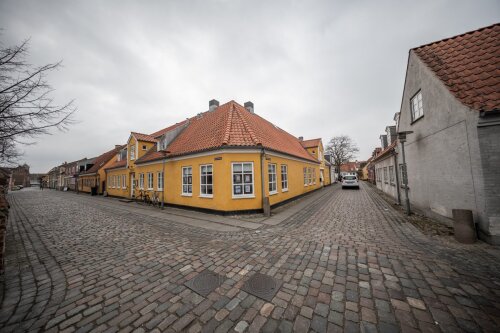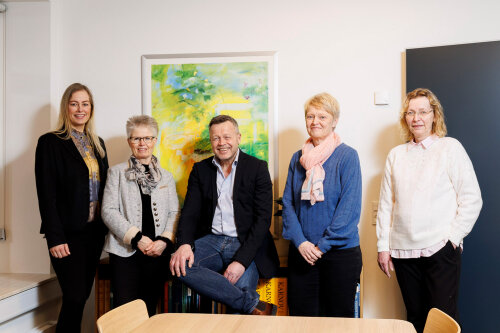Best ADR Mediation & Arbitration Lawyers in Køge
Share your needs with us, get contacted by law firms.
Free. Takes 2 min.
List of the best lawyers in Køge, Denmark
About ADR Mediation & Arbitration Law in Køge, Denmark
Alternative Dispute Resolution (ADR) methods such as mediation and arbitration are widely recognized in Køge, Denmark, as effective solutions for resolving various civil and commercial disputes outside of traditional court proceedings. ADR is intended to offer parties a less formal, less adversarial, and often more cost-effective process in comparison to litigation. In Køge, as in the rest of Denmark, mediation and arbitration are commonly used to settle disagreements involving businesses, consumers, employment, family matters, and more. The Danish legal framework encourages the use of these alternatives to minimize court congestion and foster amicable settlements.
Why You May Need a Lawyer
Legal advice from an attorney experienced in ADR mediation and arbitration can provide significant advantages throughout the dispute resolution process. Common situations where people in Køge may require legal help in ADR include:
- Drafting or reviewing a mediation or arbitration agreement
- Assessing whether mediation, arbitration, or litigation is most suitable for your dispute
- Representing your interests in mediation or arbitration proceedings
- Explaining potential legal ramifications and rights involved in ADR
- Ensuring that agreements or awards are enforceable
- Navigating cross-border disputes where multiple jurisdictions are involved
- Handling post-arbitration enforcement or challenges to an arbitral award
- Offering guidance on procedural aspects particular to the ADR institution or type of dispute
A lawyer’s guidance can help parties avoid common pitfalls and ensure a fair outcome.
Local Laws Overview
Danish law provides a robust framework for ADR, with regulations that are relevant to mediation and arbitration in Køge:
- The Danish Act on Mediation in Civil Cases governs how court-annexed mediation is conducted.
- Danish Arbitration Act (based on the UNCITRAL Model Law) establishes the principles and procedures for arbitration proceedings.
- Mediation is often encouraged by Danish courts before litigation, especially in family and commercial disputes.
- Arbitral awards rendered in Denmark are enforceable under Danish law and Denmark is a party to the New York Convention facilitating international enforcement.
- Confidentiality is a key principle in both mediation and arbitration, safeguarding the privacy of the proceedings and parties.
- Parties are generally free to select their mediator or arbitrator, unless otherwise agreed or stipulated by contract or law.
- ADR procedures are typically less formal, but parties should still be mindful of procedural fairness and requirements.
Frequently Asked Questions
What is the main difference between mediation and arbitration?
Mediation is a voluntary process where a neutral mediator helps parties reach a mutually acceptable solution. Arbitration involves a neutral arbitrator who hears both sides and makes a binding decision.
Are agreements reached in mediation legally binding?
Agreements reached through mediation can become legally binding if the parties enter into a settlement agreement, which is enforceable as a contract.
Is an arbitration award enforceable in Denmark?
Yes, arbitration awards are generally enforceable in Denmark. Danish courts usually recognize and enforce both domestic and foreign arbitral awards.
Do I need a lawyer to participate in mediation or arbitration?
While not mandatory, having a lawyer can help protect your interests, clarify your rights, and ensure compliance with legal procedures.
How do I start the mediation or arbitration process in Køge?
Usually, the process begins by agreement between parties, often guided by existing contracts. Parties can contact a mediation or arbitration institution or select a neutral third party independently.
Can ADR be used for all types of disputes?
Most civil and commercial disputes can be resolved through ADR. However, some matters, such as criminal cases or certain family law issues, may not be suitable for ADR.
What are the typical costs involved in ADR proceedings?
Costs vary depending on the complexity, the chosen mediator or arbitrator, and the institution involved. Generally, ADR is less expensive than court litigation.
How long does mediation or arbitration take in Køge?
Mediation can resolve disputes in a matter of hours or days. Arbitration usually takes several months, depending on complexity and parties’ cooperation.
Are ADR proceedings confidential in Denmark?
Yes, both mediation and arbitration proceedings are confidential, and participants are typically required to respect privacy regarding all disclosed information.
Can the outcome of mediation or arbitration be appealed?
Mediation outcomes are voluntary and cannot be appealed; a settlement is only binding if agreed. Arbitration awards are binding with very limited grounds for appeal in Danish courts.
Additional Resources
Several resources and organizations are available for those seeking help with mediation and arbitration in Køge:
- Danish Mediation Institute - Provides lists of certified mediators and information on mediation procedures.
- The Danish Institute of Arbitration - Offers administration and guidance for arbitration cases, both national and international.
- The Association of Danish Lawyers - Helps to locate experienced ADR lawyers in Køge and other regions.
- The Danish Courts (Domstolene) - Provides information on court-annexed mediation and general dispute resolution.
- Køge Municipality Legal Aid Services - May offer initial advice or refer you to appropriate professionals.
Next Steps
If you are considering mediation or arbitration in Køge, Denmark, it is advisable to take the following steps:
- Assess whether ADR is suitable for your type of dispute.
- Consult with a qualified lawyer who specializes in ADR to review your situation and suggest the best approach.
- Gather all relevant documents, contracts, and correspondence before meeting with your lawyer or ADR professional.
- If possible, try to reach an initial agreement with the other party about using ADR.
- Contact a respected ADR institution or certified mediator/arbitrator for further guidance.
- Understand the costs, timeline, and potential outcomes before commencing the process.
Seeking legal advice early in the process can help clarify your options, ensure your interests are protected, and facilitate a faster and more satisfactory resolution to your dispute.
Lawzana helps you find the best lawyers and law firms in Køge through a curated and pre-screened list of qualified legal professionals. Our platform offers rankings and detailed profiles of attorneys and law firms, allowing you to compare based on practice areas, including ADR Mediation & Arbitration , experience, and client feedback.
Each profile includes a description of the firm's areas of practice, client reviews, team members and partners, year of establishment, spoken languages, office locations, contact information, social media presence, and any published articles or resources. Most firms on our platform speak English and are experienced in both local and international legal matters.
Get a quote from top-rated law firms in Køge, Denmark — quickly, securely, and without unnecessary hassle.
Disclaimer:
The information provided on this page is for general informational purposes only and does not constitute legal advice. While we strive to ensure the accuracy and relevance of the content, legal information may change over time, and interpretations of the law can vary. You should always consult with a qualified legal professional for advice specific to your situation.
We disclaim all liability for actions taken or not taken based on the content of this page. If you believe any information is incorrect or outdated, please contact us, and we will review and update it where appropriate.










